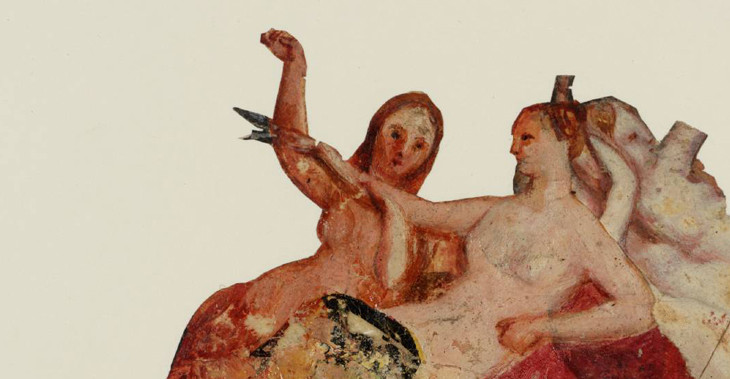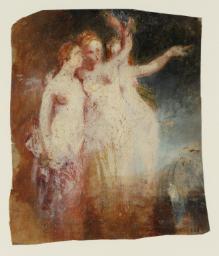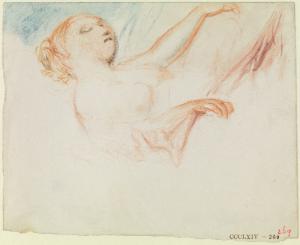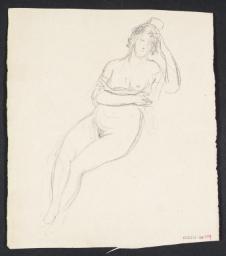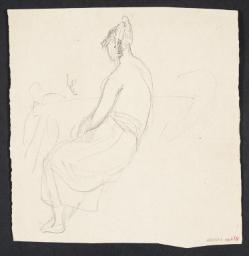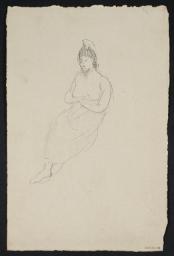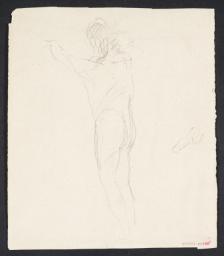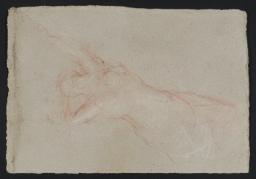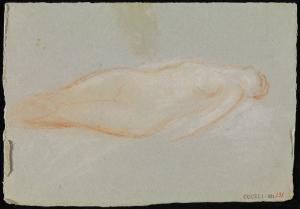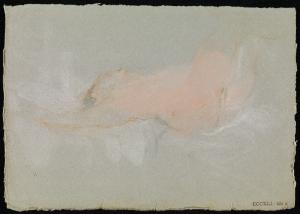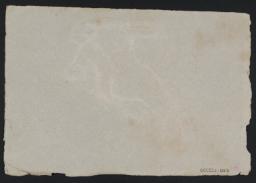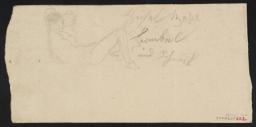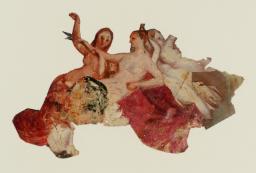From the entry
Erotic material is scattered sparsely through the Turner Bequest. This brief but varied section of separate sheets includes pencil life drawings perhaps made while Turner was abroad in 1833 (D33939–D33941, D33969; Turner Bequest CCCXLI 228, 229, 230, 254), chalk and gouache nudes on grey paper from around the same time (D33942–D33945; Turner Bequest CCCXLI 231, 231v, 232, 232v) and a swift but explicit drawing perhaps made while travelling through a German-speaking area (D34917; Turner Bequest CCCXLIV 422). D36116 (Turner Bequest CCCLXIV 269) is a rather more delicately felt watercolour, and may represent Mrs Booth, Turner’s companion in later life. The two remaining works (D36262, D36263; CCCLXIV 395, 396) are small paintings in oils on paper, and show elegant groups of nude women; the first was possibly once cut out and attached to a finished mythological painting, and the second perhaps served as a temporary means of establishing part of such a composition. See also the complementary ‘Nude ...
Erotic material is scattered sparsely through the Turner Bequest.1 This brief but varied section of separate sheets includes pencil life drawings perhaps made while Turner was abroad in 1833 (D33939–D33941, D33969; Turner Bequest CCCXLI 228, 229, 230, 254), chalk and gouache nudes on grey paper from around the same time (D33942–D33945; Turner Bequest CCCXLI 231, 231v, 232, 232v) and a swift but explicit drawing perhaps made while travelling through a German-speaking area (D34917; Turner Bequest CCCXLIV 422).
D36116 (Turner Bequest CCCLXIV 269) is a rather more delicately felt watercolour, and may represent Mrs Booth, Turner’s companion in later life. The two remaining works (D36262, D36263; CCCLXIV 395, 396) are small paintings in oils on paper, and show elegant groups of nude women; the first was possibly once cut out and attached to a finished mythological painting, and the second perhaps served as a temporary means of establishing part of such a composition.
See also the complementary ‘Nude Studies and Erotica c.1805–24’ section earlier in this catalogue. The Academy Auditing sketchbook there (Turner Bequest CCX a) comprises the largest concentration of erotic pencil studies; only the often equally vague watercolours in the Colour Studies (1) and (2) sketchbooks (Tate; Turner Bequest CCXCI b and c, addressed in the ‘Erotica and Improvisations c.1834–6’ section) are comparable in their extent and focus.
How to cite
Matthew Imms, ‘Nude Studies and Erotica c.1830–40’, September 2016, in David Blayney Brown (ed.), J.M.W. Turner: Sketchbooks, Drawings and Watercolours, Tate Research Publication, February 2017, https://www

